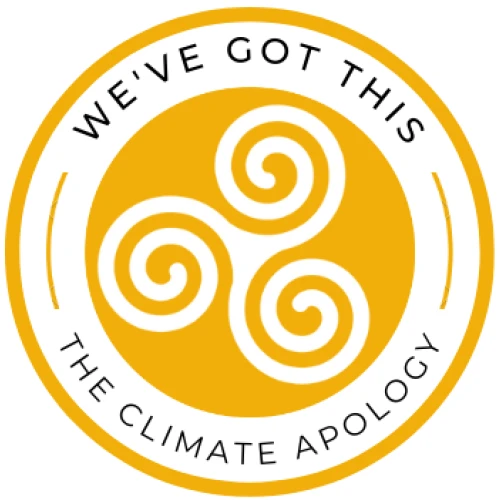"Increasing education including capacity building, climate literacy, and information provided through climate services and community approaches can facilitate heightened risk perception and accelerate behavioural changes." IPCC AR6 Synthesis Report for Policy Makers. C.3.8. March 2023.
This is the dry, scientific version of Greta Thunberg's 2019 plea for global leaders to act like "our house is on fire". It doesn't follow the environmental script of positivity we've come to accept - the gentle nudges and financial incentives towards single actions that leave the general patterns of our environmental citizenship and consumption unchallenged. Facing up to what the climate crisis means for our sources of water, food, our health, and social, economic and political stability is a pretty depressing approach to raising awareness - and doomed to fail, according to most in my middle-class milieu.
But what if our need for positive messaging was an urban myth, perpetuated so we can avoid an uncomfortable reality check and lean back further into the conveniences of the status quo? The messaging of major public health crises over the last decades has been pretty grim and accompanied by highly restrictive policies. The fact that I've stopped smoking as an Australian is the result of being socially ostracised and out-priced by exorbitant taxes on cigarettes. While I can appreciate the positives of not smoking now I've given up, the benefits to my health, breath and wallet weren't enough to persuade me during my decades-long struggle; they were only appreciated long after I'd succumbed to the barrage of public attacks against the habit. The campaigning for safe-sex practices following the outbreak of the AIDS crisis also was also shockingly fear-inducing - at least in Australia - in order to raise our perception of risk. And COVID-19 infection and death rates were front-page headlines for months and months. In the face of serious public health risks, we have never relied on gentle nudges and positive images.
Most us know the relief that comes with finally facing and dealing with a problem. Likewise, leaning into the grim facts of climate change may lead to more positive outcomes than an initial sprinkling of hope. Of course, we humans prefer our rewards up front, but once we've experienced them, there's little motivation to change. Our internal armchair environmentalist understands this, pushing the supposed need for positive incentives in order to discourage us from facing up to the science. Its aim is to protect us from things frightening and uncertain, from change. Unfortunately, distracted from the logical anxiety we feel about the impending disaster, we're not paying attention to the internal alarm bells begging us to act.
With our inherent tendency to externalise responsibility for our own actions, we need new tools with which to confront our armchair environmentalist. The climate itself is confronting us with rapid global warming and an increasing ferocity of extreme weather events. Experts are talking in explicit terms about what these mean for us and our loved ones. And yet we are still complacently waiting for that magical zap of positive motivation. We are waiting for our governments to regulate us but refusing to give them our political will to do so. We need to be jolted, not nudged. We need to find the courage to recognise the science, acknowledge our role as consumers and citizens, and change our mindset toward sustainable living.
Being asked to apologise, for anything, can trigger guilt; why the hell should I apologise? Lean into the guilt - it's one of the 'good' negative emotions that alerts us to when we might have caused harm. It can also help lubricate our relationships: "Guilt balances our urges with the needs of others."(1) There are valid reasons to feel a bit guilty when it comes to cliamte change. After all, whether intentionally or not, we've been living off the future resources of our loved ones for decades (as well as the global poor, but the further removed the guilt, the less effective it's likely to be). This guilt can be assuaged by taking the simple steps to live more simply - not easy, but simple. The positives that we crave and respond to so well will flow from doing the right things for those we love.
In responding to criticisms that this approach is too moralistic and negative, I've played around with other terms - personally, I think 'my emissions admission' is cute. But 'apology' is the only word we have that describes the process of recognising harm, acknowledging our individual role and changing our behaviours. Why shy away from framing our role in climate change in moral terms? It is a moral issue. The problem lies not in the apology, but in our fear and unwillingness to face up to the individual changes required as an essential component of global mitigation efforts.
If we can turn up the volume on our risk perception and start acting like our house is on fire, then together, we've got this.
(1) Bastin, C. et al (2016). Feelings of shame, embarrassment and guilt and their neural correlates: A systematic review. Neuroscience and Biobehavioral Reviews, 71(1), 455-471. Cited in Why Shame and Guilt Are Functional For Mental Health (positivepsychology.com)

Louise Rapaud
Previous Project
Next Project